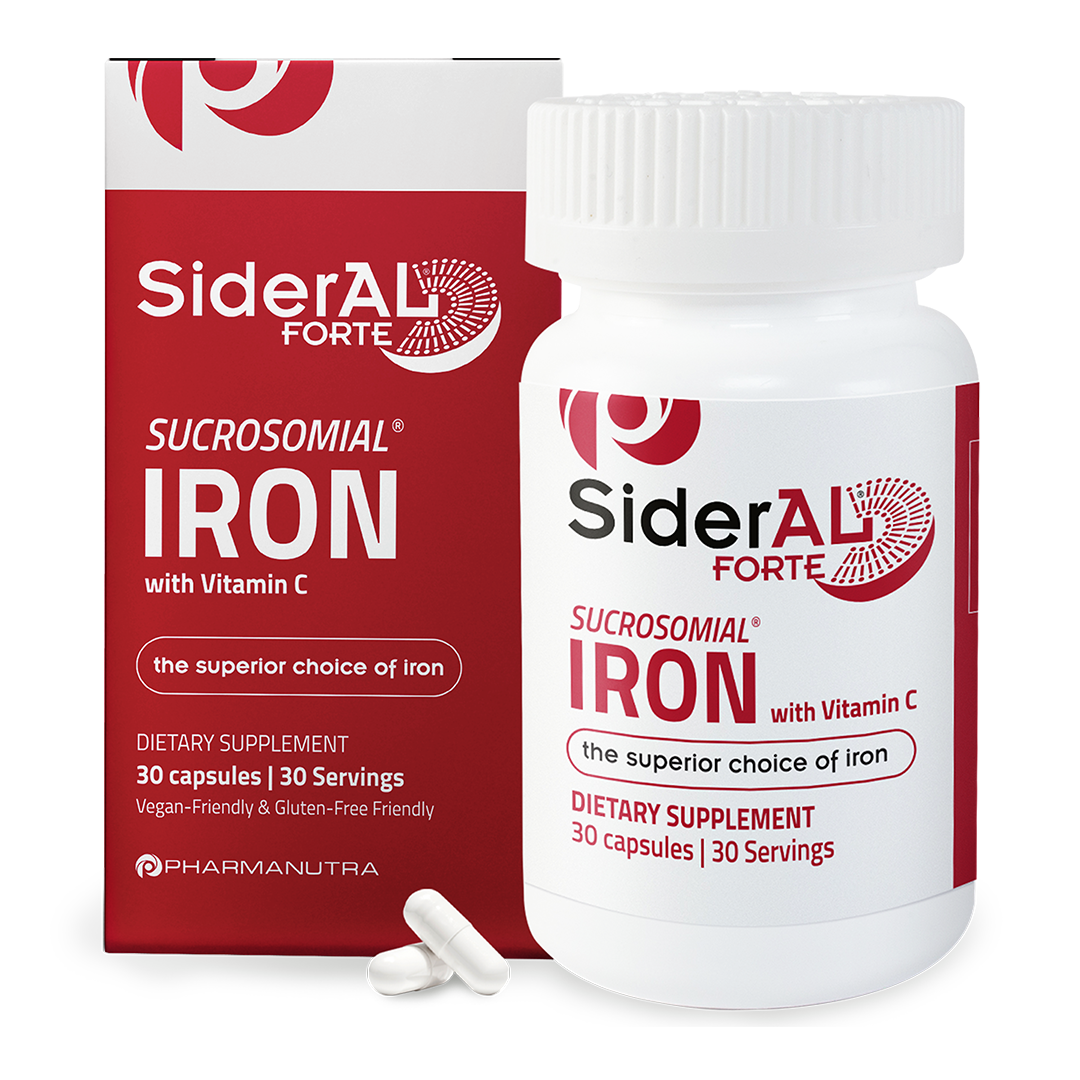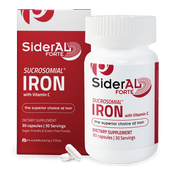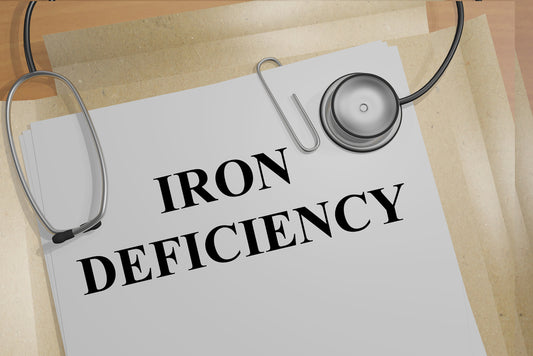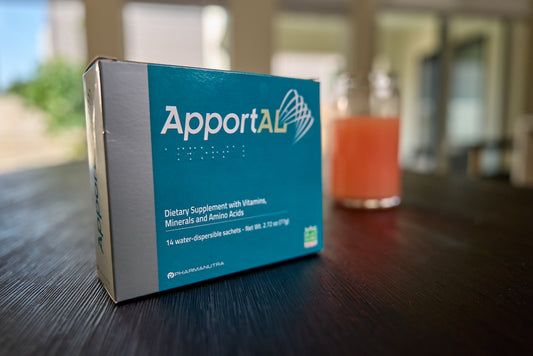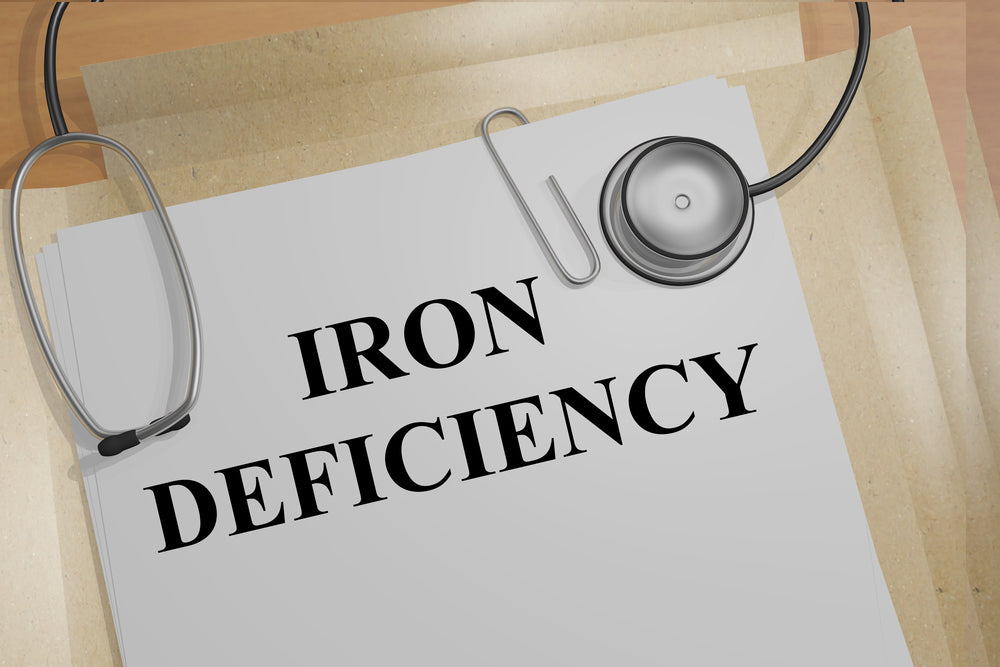
What Causes an Iron Deficiency?
Iron is an important mineral that our bodies need for growth and development. It is involved in various bodily functions, like the transport of oxygen in the blood, energy production, and the proper functioning of the immune system. Iron may be lost from the body through sweat and blood loss, among other things. A lack of iron in the body leads to iron deficiency. We’re diving deeper into what causes an iron deficiency and how you can fix it.
Iron Deficiency Causes
Blood Loss

The most common cause of iron deficiency is losing blood. Blood loss can result from various factors. Common causes of blood loss include heavy menstrual periods, blood loss due to an injury or surgery, bleeding in your gastrointestinal tract, or bleeding in your urinary tract. Iron deficiency may also be a result of frequent blood donation and frequent blood tests. Infants and small children who have to have many blood tests are at a higher risk of developing iron deficiency anemia.
Conditions That Limit Iron Absorption
Blood loss isn’t the only cause of iron deficiency. People may also develop an iron deficiency if their bodies aren’t absorbing enough iron. There are several conditions that may affect iron absorption. If you have an intestinal or digestive condition, like celiac disease, inflammatory bowel disease, or Crohn’s disease, it’s more difficult for your body to absorb iron. Those who’ve had gastrointestinal surgery, including weight loss surgery, may have trouble absorbing enough iron as well.
Diet

Another common cause of iron deficiency is diet. If you’re not including enough iron in your diet, you’re at a higher risk for iron deficiency. You can reduce your risk of iron deficiency by making sure you have an iron-rich diet. Vegetarians, for example, may have a hard time getting enough iron in their diets unless they supplement the lack of meat with other iron-rich foods. Some foods to incorporate into your diet include breads and cereals, vegetables like spinach, broccoli, and dark leafy greens, protein like beef, poultry, and eggs, and fruits like figs, dates, and raisins.
Pregnancy
Pregnancy can also result in an iron deficiency. This is because the volume of your blood increases during pregnancy, as does the amount of iron you need. Women who are pregnant with multiples, experience vomiting due to morning sickness, and who aren’t consuming enough iron in their diet have a higher risk of developing iron deficiency anemia during pregnancy.
Common Signs & Symptoms of Iron Deficiency

If you have low iron, there are a few common signs and symptoms you should look out for. Symptoms often develop over time. They may initially be small but worsen as time goes on if left untreated. Common symptoms of low iron include fatigue, chills, chest pain, headaches, dizziness, difficulty concentrating, and overall weakness. If you have iron deficiency anemia, you may experience brittle nails, pale skin, a sore tongue, and cold hands.
How You Can Treat It
If you’re experiencing the symptoms above, it’s important to get your iron levels checked. Iron supplements are used to treat iron deficiency and help ensure your body is absorbing enough iron. If you want the best iron supplements on the market, turn to our SiderAL® products. Our SiderAL® supplements contain Sucrosomial® Iron, which passes right through the stomach and is easily absorbed in the intestine. That means you can avoid the discomfort that’s often associated with iron supplements. You won’t have to worry about a metallic aftertaste, stomach pain, or constipation, and you can experience better absorption, higher tolerability, and enhanced effectiveness. We have SiderAL® Forte available, a dietary supplement with Sucrosomial® Iron and Vitamin C, and SiderAL® Folic, which comes in orosoluble sticks and contains Vitamin C, Vitamin D, Vitamins B12 and B6, and Quatrefolic® (the active form of folic acid), along with Sucrosomial® Iron.
Learn more about SiderAL® and how our products can help improve your iron levels.
